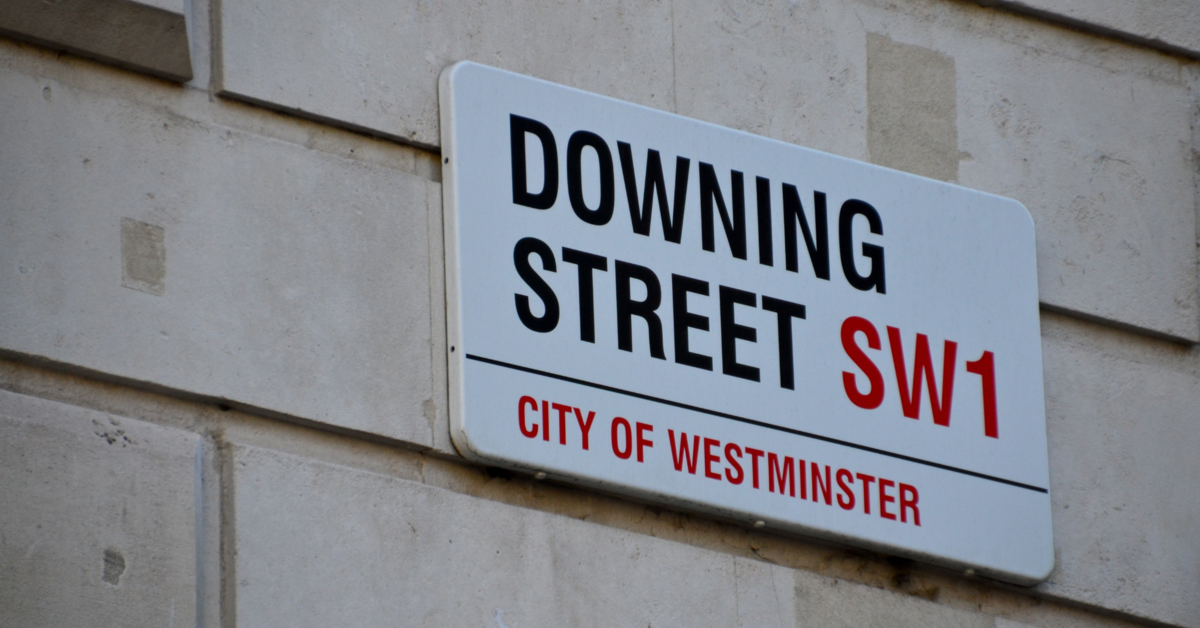Boris Leaves No.10
Boris Johnson has finally left No.10 after 3 years of service. Boris’ tenure can certainly never be described as dull, with him going down as one of the most consequential politicians to ever hold the position of Prime Minister - presiding over Brexit and the management of a global pandemic.
Delivering Brexit will be his lasting legacy, with the economic and geopolitical implications of the deal he secured with the European Union likely to last well into the tenure of the new Prime Minister. He can hold his head high for delivering the vaccine roll-out campaign and his strong support for Ukraine, which has seen Volodymyr Zelenskyy praise his role in providing military support.
However, ultimately, Boris Johnson’s legacy is not one of success. He has been forced out due to the illegal parties hosted in No.10 during the pandemic, as well as a failure to adequately deal with the steady stream of sleaze accusations that engulfed his government over the last few months.
Boris’ leaving speech on the steps of the Downing Street showed little remorse, with the strong insinuation that he felt as though the rules of the political game had been shifted in order to precipitate his demise. While a comeback may be hinted at by some of his allies, it’s ultimately difficult for a Prime Minister to rehabilitate themselves after leaving office, although we can certainly expect Johnson to make his views known through the media in the coming months.
As one of political life’s most colourful characters, he has never been known to exit the stage quietly.
Analysis: Boris Johnson’s legacy
By Will Walden
The most extraordinary political journey of modern times is over. To the last, Boris Johnson’s departure mirrored his three years in office. He is nothing if not consistent. Ever since nearly 60 ministers quit his Government in July, he has appeared unrepentant. The blame for his demise we are told lies not with him but with what his supporters see as disloyal Tory MPs, the media, and those who have always hated his unique brand of political joie de vivre.
Which is why for weeks he (tacitly) and his small but vocal band of acolytes (openly) have been telling anyone who will listen that the Conservative Party has made a huge mistake. After all, he leaves office having never lost a national election. He delivered his party a landslide 80 seat majority. Brexit – well, that was Boris too. Oh, and he oversaw the successful rollout of the UK’s vaccine programme. And, as if that wasn’t enough, he’s also a hero in Ukraine. Those are the headlines; the primary colour stuff Johnson would like everyone to focus on. And they hold some truth for sure.
The detail is a little more opaque. A Chairman rather than a CEO, it was always likely that without the right team, the right advice, and the flexibility to pivot and to listen, this was never going to end well. Johnson is out because the very traits that got him the top job proved woefully at odds with doing that job effectively.
Johnson found to his cost that you simply cannot be mired in bad headlines for months on end and carry on as if ‘there’s nothing to see here’. He has found that you cannot dismiss lockdown parties inside your own office as largely inconsequential when the public see them as anything but.
He has found that you cannot say you knew nothing about the alleged inappropriate behaviour of one of your key lieutenants, only to change your story to ‘I can’t remember being briefed’ when it’s proven that you were told.
And he’s found that you cannot lose two crucial by-elections, and still be considered a vote winner.
In the end it was the way Johnson ran his Government, his famously loose relationship with the facts and the demise of his USP – popularity with the voters – that proved his undoing. Once trust had evaporated, it was only a matter of time.
Much of what’s befallen Johnson in the last year is of his own making. Deep down Johnson will know that. But he will never admit it. To do so would be to shatter his own legacy. There will be no apologies, no regrets, and no admittance of failure.
He is already doubling down. Which is why he hasn’t done anything to dismiss the idea that he could run again if it all goes south for his successor. He won’t run, not least because returning to the past isn’t something the Tory party does, but it suits the Johnson narrative to suggest he might. He will stay for now as an MP, but he’s unlikely to contest his seat at the next election.
In the interim he will likely have a ready-made pulpit from which to preach, returning to his lucrative, entertaining, and sometimes controversial weekly column for the Daily Telegraph, or a new gig at the Daily Mail. He departs too without having to take responsibility for solving the cost-of-living crisis engulfing the country. Which means he’s in a good position if it does go wrong to say, ‘I told you so.’
In time, Boris Johnson will join Margaret Thatcher and Tony Blair as one of the most consequential Prime Ministers of the last 50 years. But consequential doesn’t necessarily mean successful. Unlike Thatcher and Blair, he will be seen as consequential not because of what he achieved in policy terms, but because of one thing above all else: Brexit.
For Johnson, today is more bitter than sweet. Bitter because the job he has always prized has been snatched away. He will bounce back, and he will undoubtedly make a lot of money on the lecture circuit. There will be a blockbuster memoir and lucrative TV opportunities.
But before that there’s the small matter of needing to complete his long-delayed biography of William Shakespeare. A book by Boris about tragedy, comedy, and history. You literally couldn’t make it up.
Will Walden is Edelman’s senior counsel for strategic communications. He was Boris Johnson’s Director of Communications between 2012 and 2016.



